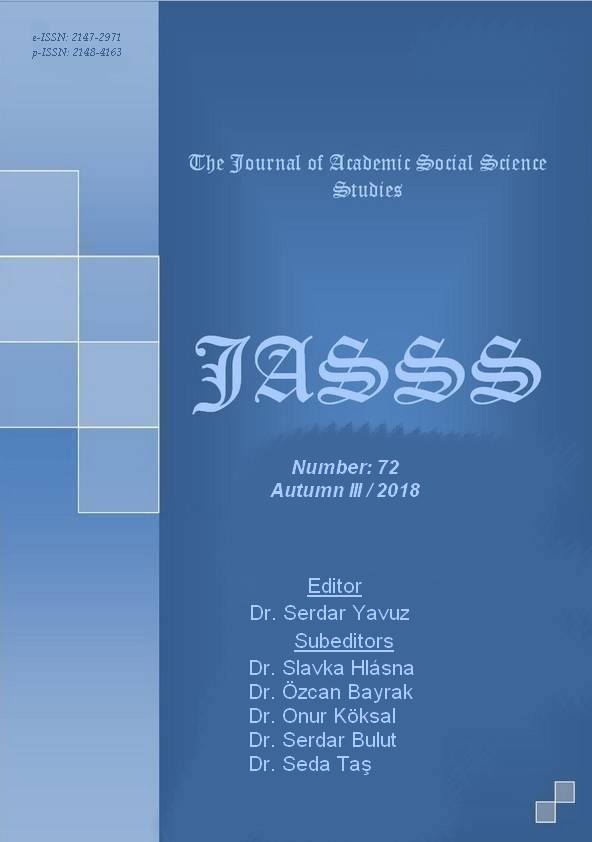TURİZM EĞİTİMİ ALAN LİSANS ÖĞRENCİLERİN TURİZM SEKTÖRÜNE YÖNELİK TUTUMLARININ ÖĞRENİLMESİ: AKÇAKOCA ÖRNEĞİ
Author :
Abstract
Öğrencilerin turizm sektörüne yönelik görüş ve düşüncelerini öğrenmek amacıyla yapılan bu araştırma sonucunda, öğrencilerin turizme yönelik tutumlarının daha önce turizmde çalışıp çalışmama, aile geliri ve öğrencilerin bölümü bırakma düşüncesine göre farklılaştığı görülmüştür. Meslek seçimi ve bu mesleği gelecekte de devam ettirme isteği ancak o meslekle ilgili olumlu tutum ve davranışların benimsenmesiyle mümkündür. Turizm sektörüne yönelik olumlu düşünceler, öğrencilerin bu mesleği kariyer planlarına dâhil etmelerini ve nitelikli insan gücünün sektöre kazandırılmasını sağlayacaktır. Yapılan faktör analizi sonucunda ortaya çıkan boyutlar, kişi-endüstri uyumu, çalışma şartları, yönetici tutumu, terfi olanakları, eğitim ve tecrübe ve sosyal statü olarak isimlendirilmiştir. Öğrencilerin turizm sektörüyle ilgili en çok çalışma şartları ile mesleğin statüsünü olumsuz olarak değerlendirmişlerdir. En olumlu ifadeler ise kişi-endüstri uyumu, terfi olanakları ve yönetici tutumu boyutlarına aittir. Ayrıca turizm sektöründe daha önce çalışmış olanların sektördeki terfi olanaklarına, daha önce turizmde çalışmayanlara göre daha az inandığı ve daha zor terfi ettirildiğini düşündükleri ortaya çıkmıştır. Yine, bölümü bırakmak istemeyen öğrencilerin eğitim-tecrübe ihtiyacı, çalışma şartları ve kişi-endüstri uyumu boyutlarına ait ortalamaları, bölümü bırakmayı düşünenlere göre çok daha yüksek çıkmıştır. Son olarak, öğrenciler turizm bölümünü kendi istekleriyle tercih ettiklerinde bölümü bırakmayı istemezken, arkadaşları, ailesi veya rehber öğretmeni baskısıyla veya onların tercihi sonucunda bölüme geldiklerinde bölümü bırakma düşüncelerinin daha çok olduğu görülmektedir. Bu da yapılan bilinçli tercihlerin kişinin okuduğu bölüme daha çok bağlı olmasını, tatmin olmasını ve bölümünü sevmesini sağlamaktadır.
Keywords
Abstract
As a result of this research aimed to learn the opinions and thoughts of the students about the tourism sector, it has been seen that the attitudes of the students towards tourism differ according to whether they worked in tourism before, family income and leaving from department intentions. The choice of profession and the desire to continue this profession in the future can only be achieved through the adoption of positive attitudes and behaviors related to that profession. Positive attitudes towards the tourism sector will enable the students to include this profession in their career plans and gain qualified human resources in the sector. Dimensions that emerged as a result of the factor analysis made are named as person-industry harmony, working conditions, managerial attitude, promotion possibilities, education and experience and social status. While the working conditions and occupational status of the tourism sector are considered as the most negative, the positive expressions belong to the dimensions of person-industry adaptation, promotion opportunities and managerial attitudes. Moreover, it has emerged that those who have worked in the tourism sector previously thought that the promotion opportunities in the sector were less believed and promoted more difficult than those who did not work in tourism before. Again, the average of the education-experience needs, working conditions and person-industry adaptation dimensions of the students who did not want to leave the department was much higher than those who wanted to leave the department. Finally, while students do not want to leave the department when they prefer the tourism department on their own terms, it seems that there are more desires to leave the department when they are separated by the pressure of their friends, family or guidance teacher or their preference. This ensures that the conscious choices made are more satisfying, and loving department.





